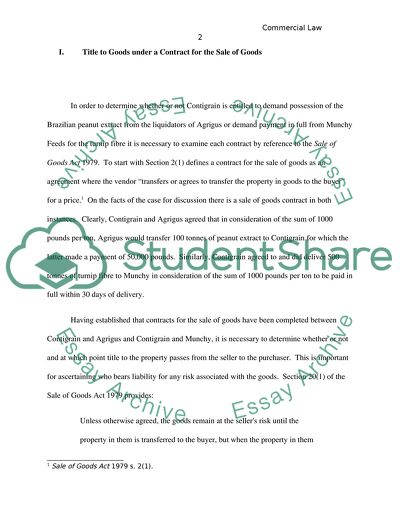Cite this document
(“Commercial Law Essay Example | Topics and Well Written Essays - 3000 words - 1”, n.d.)
Commercial Law Essay Example | Topics and Well Written Essays - 3000 words - 1. Retrieved from https://studentshare.org/miscellaneous/1562175-commercial-law
Commercial Law Essay Example | Topics and Well Written Essays - 3000 words - 1. Retrieved from https://studentshare.org/miscellaneous/1562175-commercial-law
(Commercial Law Essay Example | Topics and Well Written Essays - 3000 Words - 1)
Commercial Law Essay Example | Topics and Well Written Essays - 3000 Words - 1. https://studentshare.org/miscellaneous/1562175-commercial-law.
Commercial Law Essay Example | Topics and Well Written Essays - 3000 Words - 1. https://studentshare.org/miscellaneous/1562175-commercial-law.
“Commercial Law Essay Example | Topics and Well Written Essays - 3000 Words - 1”, n.d. https://studentshare.org/miscellaneous/1562175-commercial-law.


